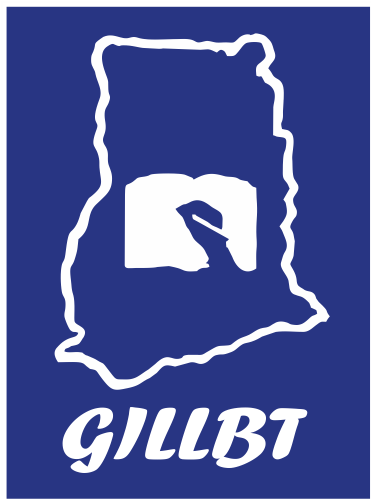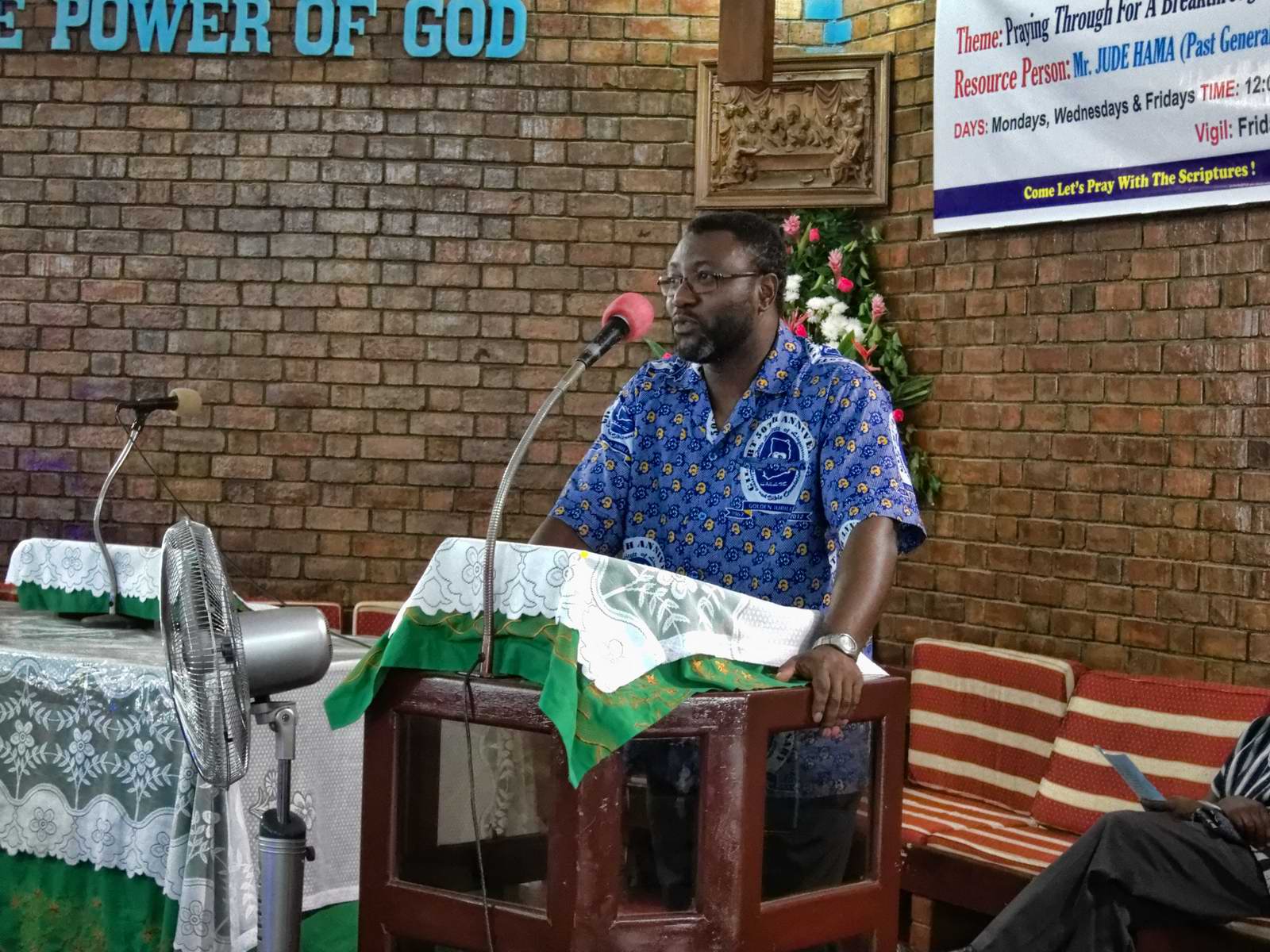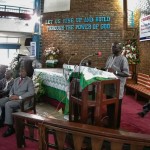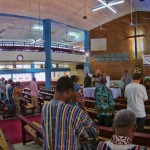In the context of a growing middle class that increasingly aspires to speak English, the growth of urban churches and urbanization in general, and the quest for what is often described as national cohesion in our multi-ethnic country, do we really need to develop and use our Mother Tongues in national life? Put differently, are our Mother Tongues still relevant in the context of these, and other, developments? These questions about the continuous relevance of our indigenous languages formed the basis of a GILLBT@50 Stakeholder consultation convened by our Partnership Development team on July 2, 2012, at Ridge Church in Accra. Dubbed “The Relevance of the Mother Tongue in National Life: The Role of the Stakeholder,” the consultation brought together three distinguished speakers including Prof. Kofi Agyekum, Head of Linguistics Department, University of Ghana; Very Rev. Prof. J.D.K. Ekem, Director, Centre for Mother Tongue Biblical Hermeneutics, Trinity Theological Seminary, Legon; and Apostle Alfred Koduah; General Secretary, Church of Pentecost.
In his presentation which began with the etymology of “Mother Tongue,” Prof Kofi Agyekum, one of the leading advocates for the use of Ghanaian languages in national life, made a solid and convincing case for the continuous relevance of the Mother Tongue in diverse domains of national life including education, identity formation, cognitive and conceptual development of the child, politics, law, governance, trade and commerce, dissemination of research results, religion, development discourse. As he concluded: “There can only be national development if research and developmental discourses are carried in the languages many people can interact freely. And this is the Mother Tongue!”
On his part, Rev Prof Ekem, the first occupant of the Kwesi Dickson-Gilbert Ansre professorial chair in Mother Tongue Hermeneutics, in a presentation titled “The Importance of Mother Tongue in Biblical Hermeneutics” opened forcefully: “No nation can develop holistically without paying proper attention to its mother tongues”. Arguing that Biblical Hermeneutics is a complex and multifaceted area of scholarly work, he was emphatic that “we can make a viable contribution through the MOTHER TONGUE APPROACH”. Indeed he was categorical that: “this approach is likely to shape the future of Biblical studies and other aspects of Theology in Africa.”
In a powerful presentation based on 11 short stories, including 2 biblical ones, Apostle Alfred Koduah, the General Secretary of the Church of Pentecost– a church whose growth and vibrancy is directly linked to the usage of the Mother Tongue– brought the discussion down to the practical realities of discipleship in the church. Located in the concrete realities of “the pulpit”, his presentation demonstrated the inadequacy of pastoral work that neglects the use of the Mother Tongue. Arguing that the lack of attention to the Mother Tongue in pulpits results in situations where “many people close from church services without understanding what the preachers said”, he stressed “the need for stakeholders to collaborate and promote the use of the mother tongue in communicating the meta-narratives of the gospel.”
In his closing remarks, the chairman of the occasion, Emeritus Professor Djangmah, a former Director General of the Ghana Education service brought the presentations together, and linked them to issues of the poor quality of education in the public schools. The challenge of improving the quality of education in the public schools, he argued, is one in which the Mother Tongue, and Mother Tongue providers, should contribute.
Beyond their endorsement of the Mother Tongue, all the speakers affirmed GILLBT and its contributions in the country: To Prof Kofi Agyekum, GILLBT is to be commended ad supported for their work in developing and promoting the Ghanaian languages. To Rev Prof Ekem:
“GILLBT and its sister agencies deserve commendation for translating the New Testament and the Full Bible into several Ghanaian languages…It is hoped that attention will also be devoted to the provision of Bible Commentaries and other Study Helps for our various local Ghanaian communities. More grease to the elbows of GILLBT and sister institutions”.
In perhaps the most powerful of these affirmations, Apostle Kodua, appropriating the story recorded in Judges 12: 1-6 had this to say:
“Institutions that are involved in the production of the Christian’s sword (the Bible) constitute the “spiritual blacksmiths” for Christianity. One of such institutions is GILLBT. Accordingly, all stakeholders of such all-important institutions must continue to join hands with them to enable them produce more “Spiritual swords” for every Christian and non-Christian alike in their mother tongue. They should be assisted with all available logistics to enable them produce at full capacity; otherwise, on the day of battle, soldiers of the cross will be left with no swords to fight”
In my welcome address, I stated our organizational response to the issue of our national languages:
“After fifty years, as an organization we still remain committed to Mother Tongue Language Development and Bible Translation in Ghana. Essentially we believe that our national languages—our Mother Tongues– are still relevant and critical to our political, social, economic and spiritual development. This is more so as we remain a country where a vast number of citizens do not speak or understand the official language—English.
As a concrete indication of this commitment, I promised that we will build national and international partnerships to enable us develop the John Bendor-Samuel Center as an institutional infrastructure for the preservation of our languages—our Mother tongues—and their usage in national development and in the life of the Church in Ghana, and beyond.




Language is a major component of a people’s culture. Language and culture are interwoven and thus cannot be separated. Any attempt to do so will destroy the whole unit. Take a kentey cloth and attempt to separate the threads and you will end up with something else and not a nicely knit cloth. In much the same way, take the language of a people from them and you have destroyed their culture.
The notion of modernity should not destroy a people. It should rather build and lead to development. Elevating someone Else’s language at the expense of your own mother tongue is a sigh of low self esteem and some kind of ignorance I think. In a nation like ours, with almost 70% illiteracy, ignoring the mother tongue is to our own peril. we have tried other foreign languages for the past many years after independence and we are where we are. We cannot boast of much in terms of real development. Why not try the mother tongue and see what that will also do for us. I am not advocating for a scrap of the foreign languages, No, i am simply adding my voice to say that we ignore our mother tongue to our own peril. Let us rather develop it as a nation and we will go far.
Recently, we started a new radio station in the Nkwanta south district in the volta region. we wanted to link up with one of the major stations for news so we conducted a survey. The overwhelming choice was Peace FM. The reason they gave was this:’Brofo dea emmoa yen wo ha” litterally, english will not help us here. we listened to them and when we started broadcasting the news in the local languages, the community could not hide their joy.
Communication is for people to understand and this must be in the language they understand best.
I do not intend to write another paper. I am only making a comment to add my voice to Opanyin Agyekum and others.
May our mother tongue be elevated in our day and age.
Dear Dr Opoku-Mensah,
Having read your piece about the Ridge Church event, I am wondering if you intend to publish these papers on the Mother Tongue, and whether there might be other papers available or will be available later in your Jubilee year. The reason I am asking is that I am wondering if we could devote the December 2012 issue of the Journal of African Christian Thought to the theme, profiling GILLBT and ACI in their mutual interest in the mother tongue.
I’ll look forward to your response.
Sincerely in Christ
Mary
Our son’s ability to understand the values of our culture in a foreign land has been directly related to our ability to communicate with each other in mother tongue in the family. We have intentionally sought to do this. It has contributed to his total education and he knows clearly, where his roots are as a result. We pursue this noble agenda aware that our own capacity in mother tongue is limited but that has become a positive challenge to us also. So whether it is in matters of faith or secular, personal/family or community, mother tongue is the bed rock on which to build the super structure of development. In our mother tongue diversities, we see the beautiful pieces that my friend Kwame Nkrumah talks about as unique elements of society, creatively woven together into a wholesome unity for development at all levels. I sincerely appreciate all the contributors to this discussion.